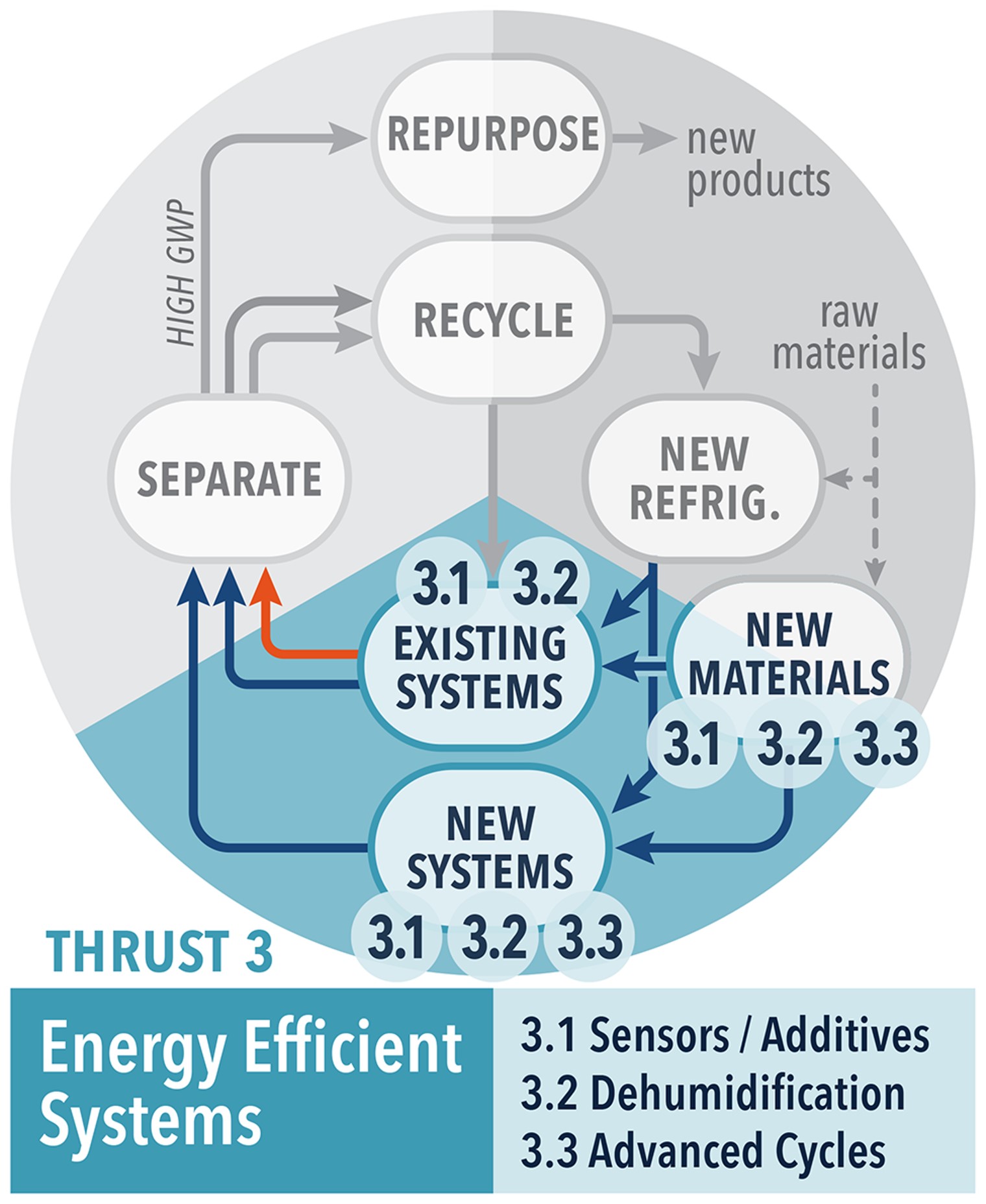Research Thrusts


Lead

Co-lead

Co-lead
Thrust 1: Reclaim & Repurpose
In order to prevent millions of metric tons of high-GWP refrigerants from leaking and illegally venting into the atmosphere, we will develop technology-driven solutions that better regulate the refrigerant supply chain and cheaply and efficiently separate and repurpose existing HFCs for new applications. Solutions will include: new security markers for refrigerant producers to use at ports of entry and regional/local distribution centers; low-cost, energy-efficient separations of individual HFC compounds from recycled mixtures, waste refrigerants, and future hydrofluoroolefin (HFO) blends; and new methodologies for repurposing high-GWP refrigerants into diversified fine and commodity chemicals. Behavioral data and analyses to improve our technology adoption as well as cost analyses that influence future policy making will support this Thrust.
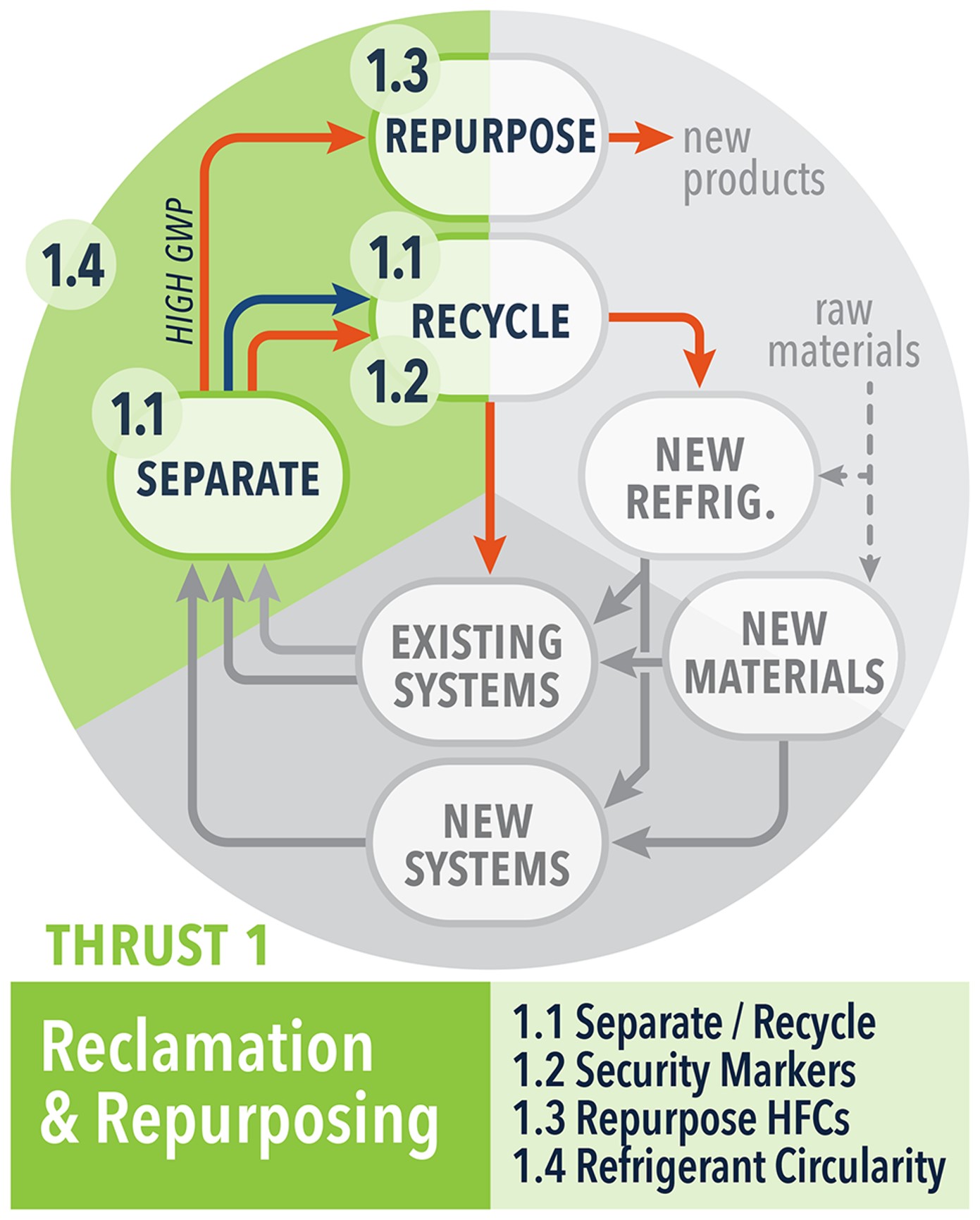
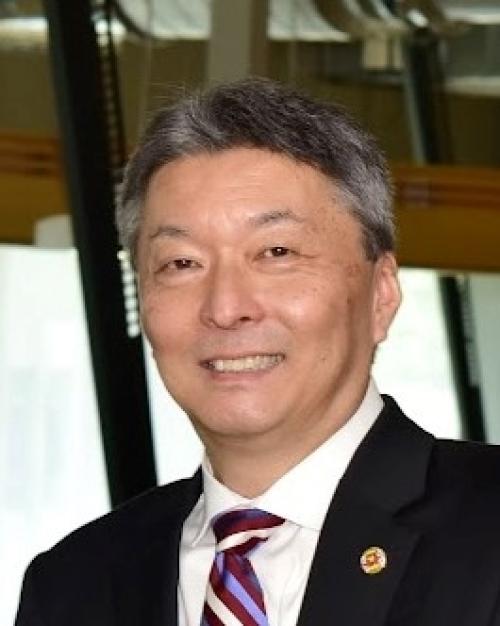
Lead
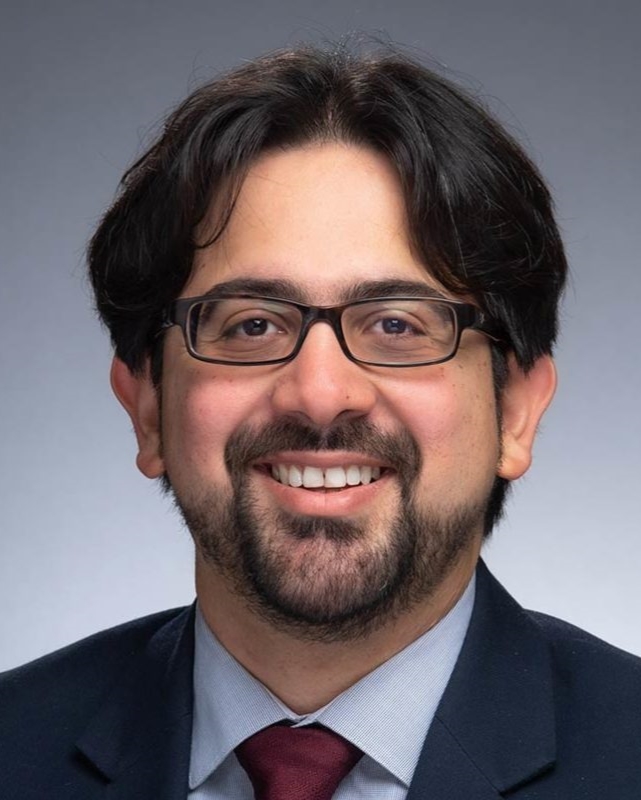
Co-lead
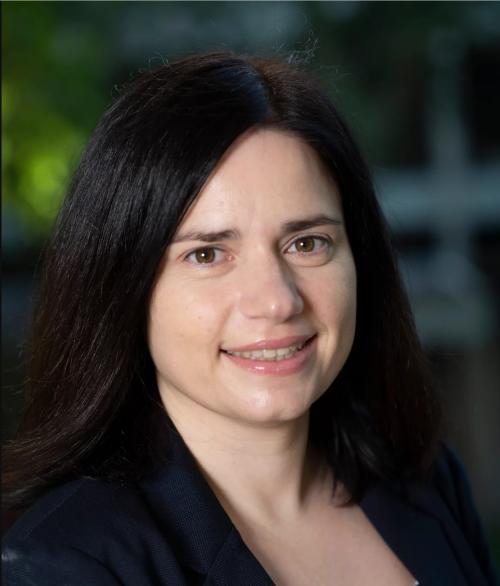
Co-lead
Thrust 2: Novel & Safe Refrigerants
Thrust 2 will establish a holistic approach to future refrigeration technologies through systematic and preemptive rational design of compounds and devices. Both new fluid refrigerants and alternative solid state technology will be advanced. Atmospheric Impact of Refrigerants will be studied using chemically accurate atmospheric model components. This Thrust will explore new molecules or blends of molecules that can perform as refrigerants and meet standards of operating conditions and environmental considerations. The team will also address fundamental materials synthesis and device integration challenges associated with advancing caloric and thermoelectric technologies including elastocaloric cooling.
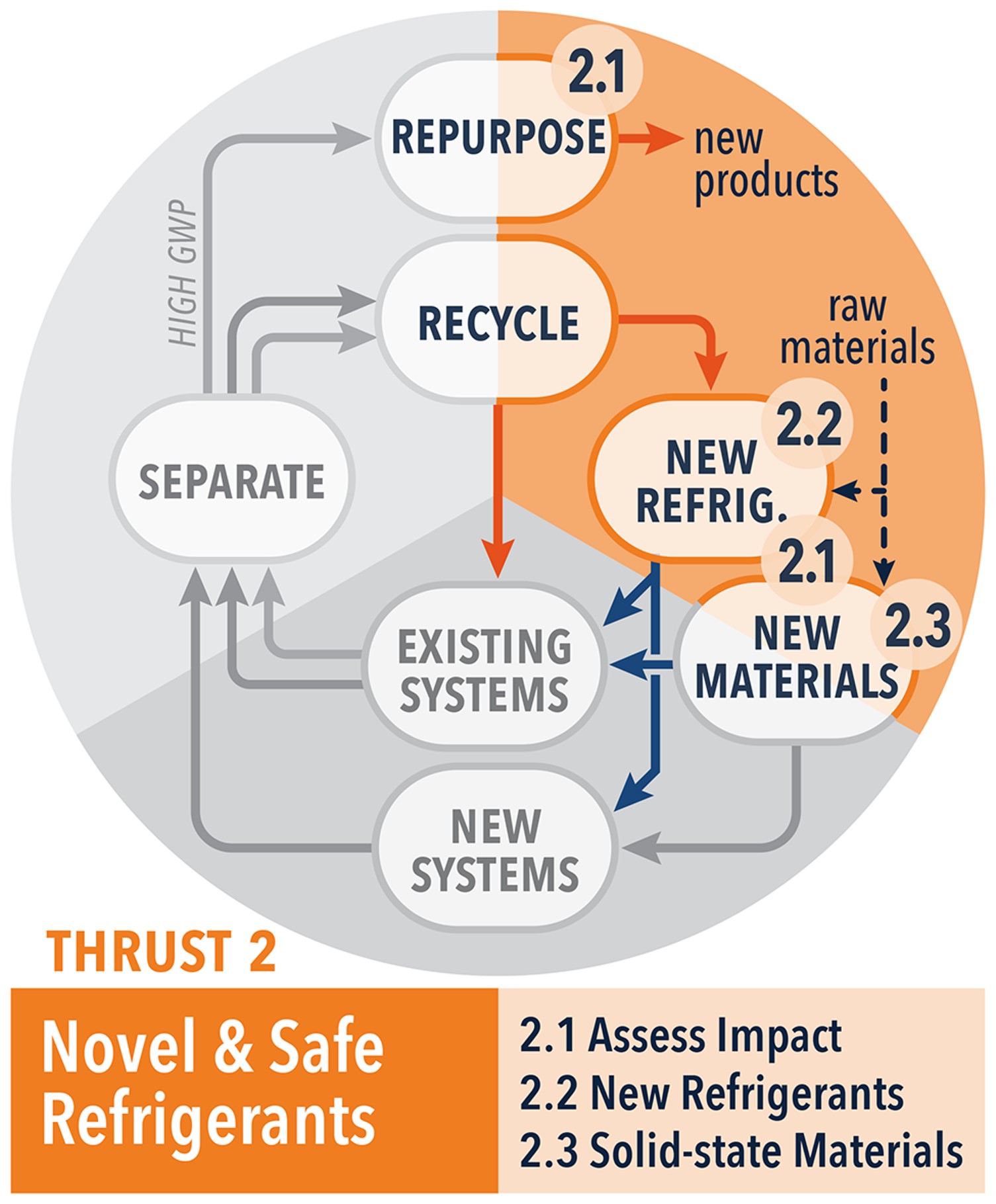

Lead

Co-lead
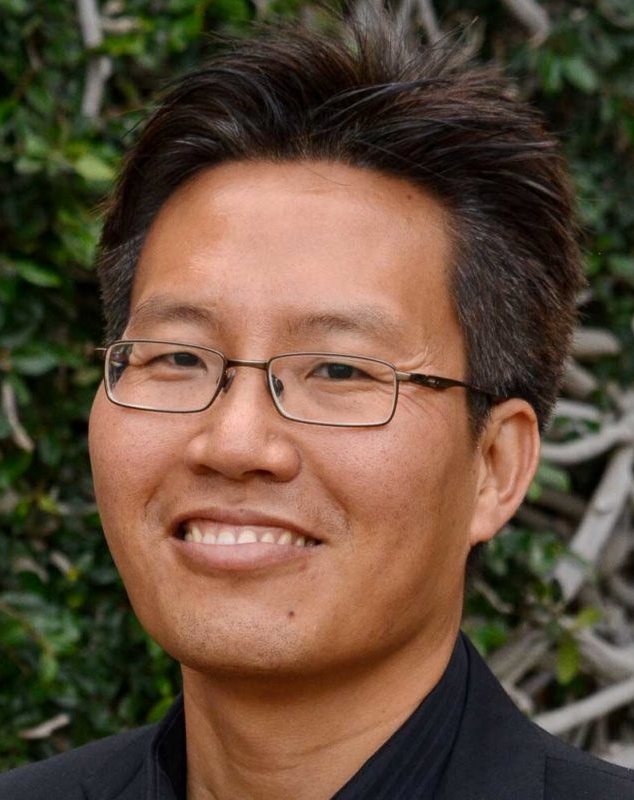
Co-lead
Thrust 3: Energy Efficient Systems
Thrust 3 researchers are working to generate the fundamental scientific knowledge necessary to develop technologies that reduce the energy use and greenhouse gas emissions associated with HVACR systems. To address refrigerant leakage—an issue that can result in up to 90% loss over the equipment's lifetime—the team is developing new sensors for early leak detection. Given that dehumidification accounts for ~30% of the energy use in air conditioning, the team is also working to discover and develop new materials and methods for energy-efficient dehumidification. Additionally, Thrust 3 is exploring alternative cooling cycles, such as electrochemical-reaction cells and solid-liquid phase transitions, which have the potential to achieve disruptive energy efficiencies by eliminating reliance on the bulk gas phase used in traditional cooling cycles.
